Kate Gannon

Kate is an Assistant Professorial Research Fellow in the Sustainable Development team. She has a background in human geography as well as science and technology studies. Kate pursues interdisciplinary and problem-solving research that explores the interactions and relationship between climate and society. Her research is particularly focused on social and institutional dimensions of climate change adaptation at multiple scales, including in sub-Saharan Africa and among private sector actors.
Kate is co-Principal Investigator on the Behavioural Adaptation for water Security and INclusion (BASIN) project. BASIN is an impact-focused, transdisciplinary partnership led by the Grantham Research Institute, WaterAid and Water Witness International under the CLimate Adaptation and REsilience (CLARE) programme. It brings together four universities, three NGOs and a knowledge broker to apply multi-level behavioural and psychological science for adaptation in Africa, to enhance water security for the most vulnerable.
Kate is co-Director of ATTENUATE which focuses on proving the investment potential of UK adaptation and enhancing enabling environments for adaptation finance in the UK. The Grantham Research Institute is delivering ATTENUATE in partnership with the Environment Agency, the Green Finance Institute, Love Design Studio, Paul Watkiss Associates, and the University of Bath. ATTENUATE – creating the enabling conditions for UK climate adaptation investment- is funded by the UKRI-Defra “Maximising UK Adaptation to Climate Change” programme.
She also leads the Women Entrepreneurs in Climate Change Adaptation (WECCA) project, which investigates specific barriers to adaptation faced by female-led businesses in Africa.
Kate is also a member of the Climate Resilience in the UK Wine Sector (CREWS-UK) research team, focusing on adaptation pathways to support resilience in English and Welsh wine production.
Kate’s other recent projects include:
- The Development Corridors Partnership, where her work focused on how Sustainable Development Goal (SDG) objectives can be more closely integrated into development corridors in East Africa.
- The NERC funded El Niño project that explored the impact of El Niño-related floods and drought – and associated water and electricity supply disruption – on small and medium enterprises in Botswana, Kenya and Zambia
- The Pathways to Resilience in Semi-Arid Economies (PRISE) program, where her work focused on examining the role of the private sector/multi-stakeholder partnerships in climate change adaptation and climate resilient development in Kenya and Senegal
Background
Prior to joining Grantham, Kate completed her PhD at King’s College London, where she explored ecological worldviews and public perceptions of geoengineering through an ethnographic case study of the Haida Salmon Restoration Corporation’s ocean fertilisation experiment. Kate also holds an MRes in Environmental Social Science Research and a BSc in Environmental Geography and International Development from the University of East Anglia.
Research interests
- Social and institutional dimensions of climate change adaptation and sustainable development, with a focus on sub-Saharan Africa and equity outcomes;
- Autonomous adaptation to climate change, including among small businesses and within agricultural value chains;
- The role of gender and intersectionality in climate change adaptation;
- Private sector investment in Africa;
- Community participation in environmental governance;
- Geographies of geoengineering;
- Climate change and viticulture.
Research
Research - 2025
This brief outlines the integrated, synthesised approach to co-designing research to reconcile the different priorities and cultures of research and practice adopted by the BASIN project. Read more
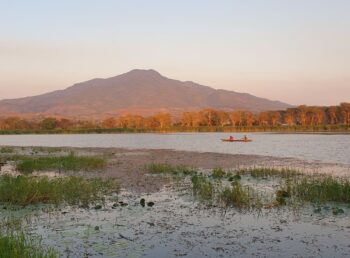
This brief from the BASIN project explores how behavioural research can better address complex, ‘wicked’ problems such as inclusive water security and climate adaptation. Read more
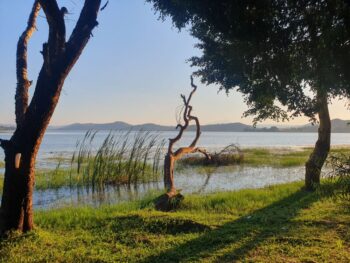
This paper explores how female representation in the ownership or management structures of micro and small businesses shapes firm-level adaptive capacity, as implied through adaptation behaviour. Read more
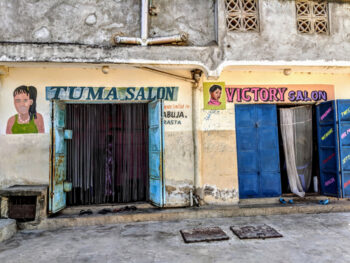
Research - 2024
Drawing from extensive literature and insights gleaned from a 4 year research programme, this review scrutinizes the impacts of development corridors on people, wildlife and ecosystems in Kenya and Tanzania, proposing solutions to achieve better outcomes. Read more

This study looks at the impact of water ATMs operated by Kenyan water service provider FundiFix in dispersed rural communities in the semi-arid Kitui County. Read more

Research - 2023
This research contributes to literature on private sector adaptation, examining business-level adaptation to climate change in the UK wine sector. Read more
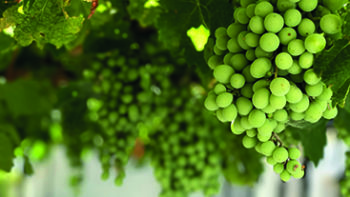
Nature-based solutions involve working with nature to address societal challenges while promoting human wellbeing and biodiversity. As nature-based solutions become... Read more
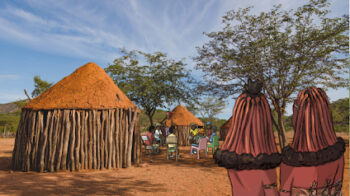
This chapter is part of the 'Impact Assessment for Corridors: From Infrastructure to Development Corridors' book published by Development Corridors Partnership. Read more

Research - 2022
The authors of this paper simulate the projected repetition of the UK's highest yielding season —2018— and use an analogue approach to model the 1999–2018 mean growing season temperatures from Pinot noir producing areas of Champagne (France), Burgundy (France) and Baden (Germany) over the UK during 2021–2040. Read more

The authors of this paper conduct a systematic review to synthesize existing knowledge on differential vulnerability of female entrepreneurs in Africa to climate risk, in relation to their sensitivity to extreme climate events and their adaptive capacity. Read more
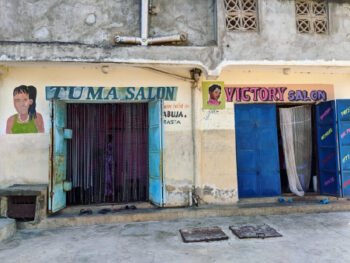
Research - 2021
In this paper the authors advance a novel approach to integrated assessment of the ways in which the Sustainable Development Goals (SDGs) are likely to manifest and interact within a given development context, using Q-Methodology and the conceptual framing of imaginaries. Read more

Amidst increasing interest in multi-stakeholder partnerships (MSPs) in climate discourse, this paper identifies four rationales for why MSPs may be... Read more
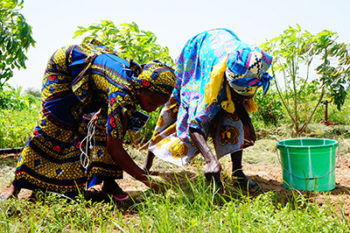
This paper was submitted for the 2021 International Association for Impact Assessment Conference. Notwithstanding the Covid-19 pandemic, enthusiasm for globalisation... Read more

Research - 2020
The analysis suggests that the Sustainable Development Goals and their targets mostly create conditions that aid the achievement of each other within development corridors but that there are trade-offs between some goals and other development gains. The authors signal priority areas for investment, policy reorientation and strengthened safeguards, to maximise positive SDG interactions and minimise negative ones. Read more
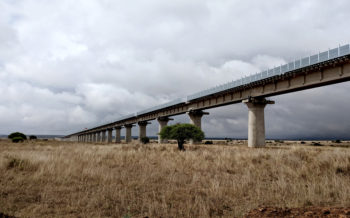
Declan Conway (Grantham Research Institute for Climate Change and the Environment, LSE), Steve Dorling (University of East Anglia) and Kate... Read more

This paper investigates the role of multi-stakeholder partnerships (MSPs) in supporting the development of enabling conditions for adaptation to climate change among micro, small and medium enterprises (SMEs) in developing countries, with a focus on Kenya. Read more
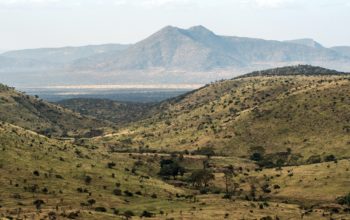
Globally, semi-arid lands (SALs) are home to approximately one billion people, including some of the poorest and least food secure.... Read more

Research - 2018
The El Niño event in 2015/2016 was one of the strongest since at least 1950. Through surveys and interviews with... Read more

This research suggests that female-led MSMEs in Narok, Kenya, may face both additional exposure to climate risk compared with men, and additional barriers to adapting to that risk. Read more

Chapter published in the Handbook of Climate Change Resilience This chapter contributes to the literature on private sector adaptation by... Read more

The Haida Salmon Restoration Corporation’s (HSRC) 2012 ocean fertilisation experiment introduced a controversial geoengineering technology to the First Nations village... Read more

Abstract The private sector is increasingly recognized as having important potential to help society adapt and become more resilient to... Read more

The 2015/2016 El Niño was one of the three most severe on record. El Niño is commonly linked to droughts... Read more

Research - 2017
This paper describes an opportunistic case study of the 2012 Haida Salmon Restoration Corporation’s ocean fertilization project. Read more

Policy
Policy - 2025
A submission responding to a call for views on the dialogues under the United Arab Emirates Just Transition Work Programme on approaches to enhancing adaptation and climate resilience in the context of just transitions. Read more
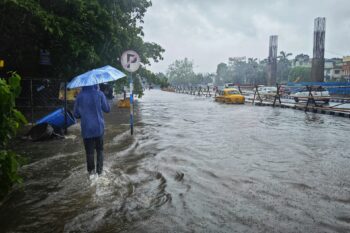
This brief presents findings from a survey of 202 female and male entrepreneurs in South Africa to assess gendered differences in climate information use and provide recommendations for policymakers. Read more
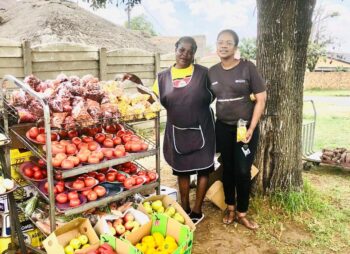
Policy - 2024
This submission presents eight key recommendations for Parties to the UNFCCC which address the priorities of the second dialogue of the UAE Just Transition Work Programme. Read more
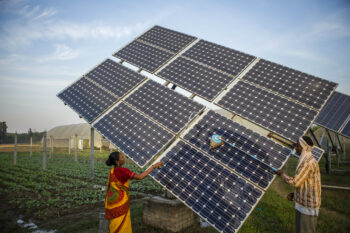
Climate change presents both opportunities and challenges for the UK wine sector. This policy brief sets out what more needs to be done to enhance resilience in UK viticulture, drawing on the CREWS-UK project. Read more
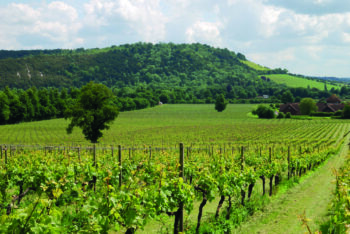
Policy - 2023
This policy brief draws on research undertaken in Laikipia County in central Kenya to underscore the challenges faced by female entrepreneurs in Africa in the face of climate change and how policy can support them to build strong, climate-resilient businesses across Sub-Saharan Africa and beyond. Read more
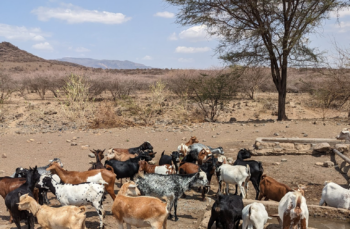
Policy - 2022
This is a short summary of the latest research from the CREWS-UK project, which has found that climate change is likely to further impact the viability, variety suitability and wine style potential of viticulture in the UK. Read more
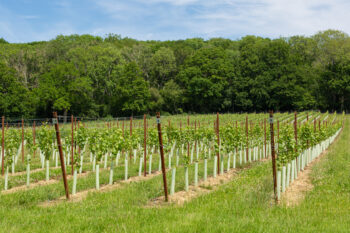
This report [in French] is the result of research conducted in the semi-arid Kaolack region of Senegal, as part of the Women Entrepreneurs in Climate Change Adaptation (WECCA) project. Read more
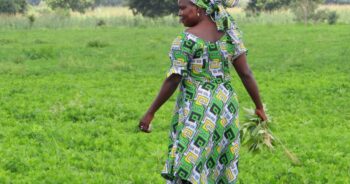
Policy - 2021
A submission based on work from across the Grantham Research Institute to the FCDO's recent call for evidence to inform the UK's forthcoming International Development Strategy. Read more

Policy - 2019
A policy brief published through Kenya Markets Trust: Bedelian, C., Carabine, E., Said, M.Y., Abuya, R., Atela, J., Ateino, F., Crick,... Read more

This report and accompanying 8-page brief examine some of the emerging challenges in climate governance in South Africa and potential solutions. The lessons identified are also relevant for other developing economies. Read more
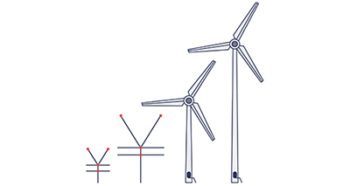
Policy - 2018
With substantial new hydropower generation planned for eastern and southern Africa, how can risks from rainfall variations and climate change be overcome to ensure reliable supply and socioeconomic development? This brief analyses the challenges and provides recommendations to policymakers, the energy sector and development partners. Read more

This is the French translation of the PRISE [PRESA] policy brief 'Supporting private adaptation to climate change in semi-arid lands in developing countries', published in June 2018. Read more

National governments, with development partners, have an important role to play in supporting adaptation and climate-resilient development among private actors – households, producers and small businesses – in the semi-arid lands of developing countries, argues this brief, a final output from the Pathways to Resilience in Semi-Arid Economies (PRISE) project. Read more
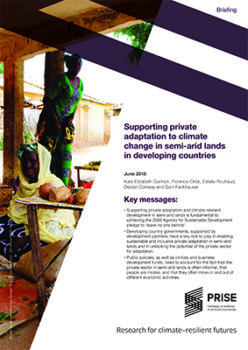
This briefing note submits learning to the Talanoa Dialogue process from PRISE on supporting private adaptation to climate change by households and businesses in semi-arid lands. Read more

Policy - 2017
Although research on climate change adaptation has been conducted on households and communities, particularly in Senegal’s semi-arid lands (SALs), very... Read more

Books
Books - 2023
Nature-based solutions involve working with nature to address societal challenges while promoting human wellbeing and biodiversity. As nature-based solutions become... Read more

This chapter is part of the 'Impact Assessment for Corridors: From Infrastructure to Development Corridors' book published by Development Corridors Partnership. Read more

Books - 2018
Chapter published in the Handbook of Climate Change Resilience This chapter contributes to the literature on private sector adaptation by... Read more

News
News - 2025
This news article reports on the growth of the wine industry in Wales. Read more

This commentary article for The Conversation outlines some of the reasons why women in Africa face additional vulnerability to climate change. Read more

Researchers from the BASIN water security project outline the role community ‘champions’ often play in NGO programming in Africa and some of the common pitfalls. Read more
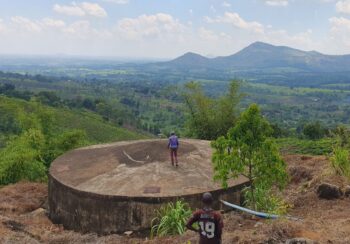
News - 2024
This article reports on a new study which assesses the growing global threat posed by drying lands. Read more
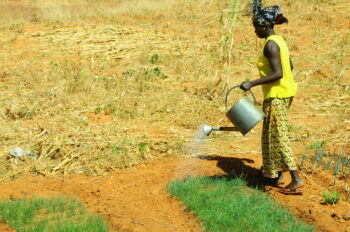
A person’s water security is affected by their gender, as is their likelihood to hold decision-making positions about this vital resource. To increase water security in the face of a changing climate this must change. Read more

Will Ingram and Kate Gannon outline how accounting for systemic factors can in behavioural research can improve outcome for communities experiencing water insecurity and adapting to climate change. Read more
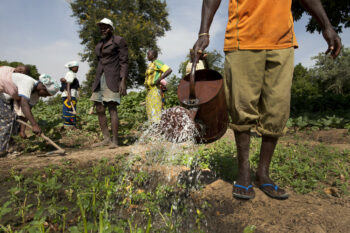
News - 2023
In many water-stressed parts of the world there need to be improvements in decision-making around water resources to make climate change adaptation more effective and equitable in policy and practice. This commentary introduces the issues and a new project called BASIN that aims to draw insights from behavioural and psychological sciences to improve decision-making in this area. Read more
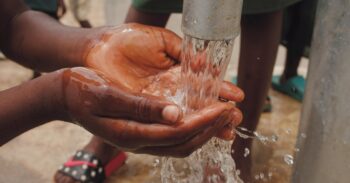
News - 2022
Research shows that women entrepreneurs in Africa are more vulnerable to climate change than their male counterparts for at least three key reasons. Kate Gannon sets out the findings and solutions in this commentary. Read more

Kate Gannon considers the role multi-stakeholder partnerships could play in supporting entrepreneurship in so-called ‘development corridors’ in sub-Saharan Africa and in enabling them to deliver not just infrastructure, but a more integrated and equitable form of development as communities strive to adapt to climate change. Read more
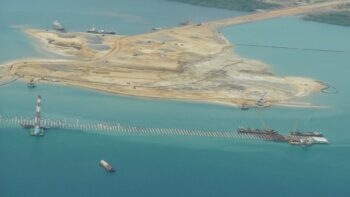
News - 2020
Kate Gannon discusses the CREWS project which is assessing climate resilience in the UK wine sector. Read more

Non-governmental organisations in countries such as Kenya are developing multi-stakeholder partnerships to unlock private sector resources to support adaptation to climate change. Yet without careful ongoing monitoring and support, the most vulnerable are unlikely to benefit, writes Kate Gannon. Read more

This article argues that a radical shift is needed in semi-arid policy landscapes, that refocuses on leveraging existing climate change adaptive capacities of private actors – women, farmers, businesses and cooperatives – to cope with and respond to prevailing environmental shocks and weather extremes. Read more

News - 2019
Climate policy has taken a particular hit during a 10-year period of political corruption and uncertainty in South Africa but now the country has a chance to get back on track, say the authors of this commentary. Read more
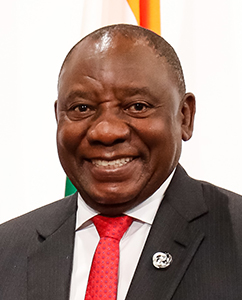
UK viticulture has been touted as a sector that stands to gain from climate change. As we enter English and Welsh Wine Week 2019, much excitement surrounds the sector, especially following last year’s ‘harvest of the century’. But producers should be considering the risks, as well as the opportunities, of a changing climate, says Kate Gannon. Read more

News - 2018
Reuters Foundation News, 7 December 2018 Read more

The Conversation, 5 December 2018 Read more

The major disruption to urban water and hydroelectricity supplies caused by the conditions accompanying the 2015/16 El Niño in Southern Africa show that governments and businesses need to be more prepared for climatic extremes, argue the authors of this commentary. Read more
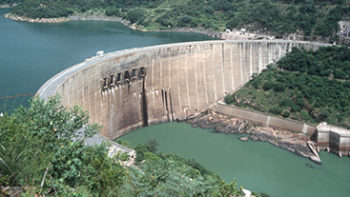
Policymakers must pursue both climate adaptation and development if they are to support the poorest in semi-arid regions say Florence Crick, Kate Gannon an Estelle Rouhaud. Read more

Advanced Science News, 3 February 2018 Read more


